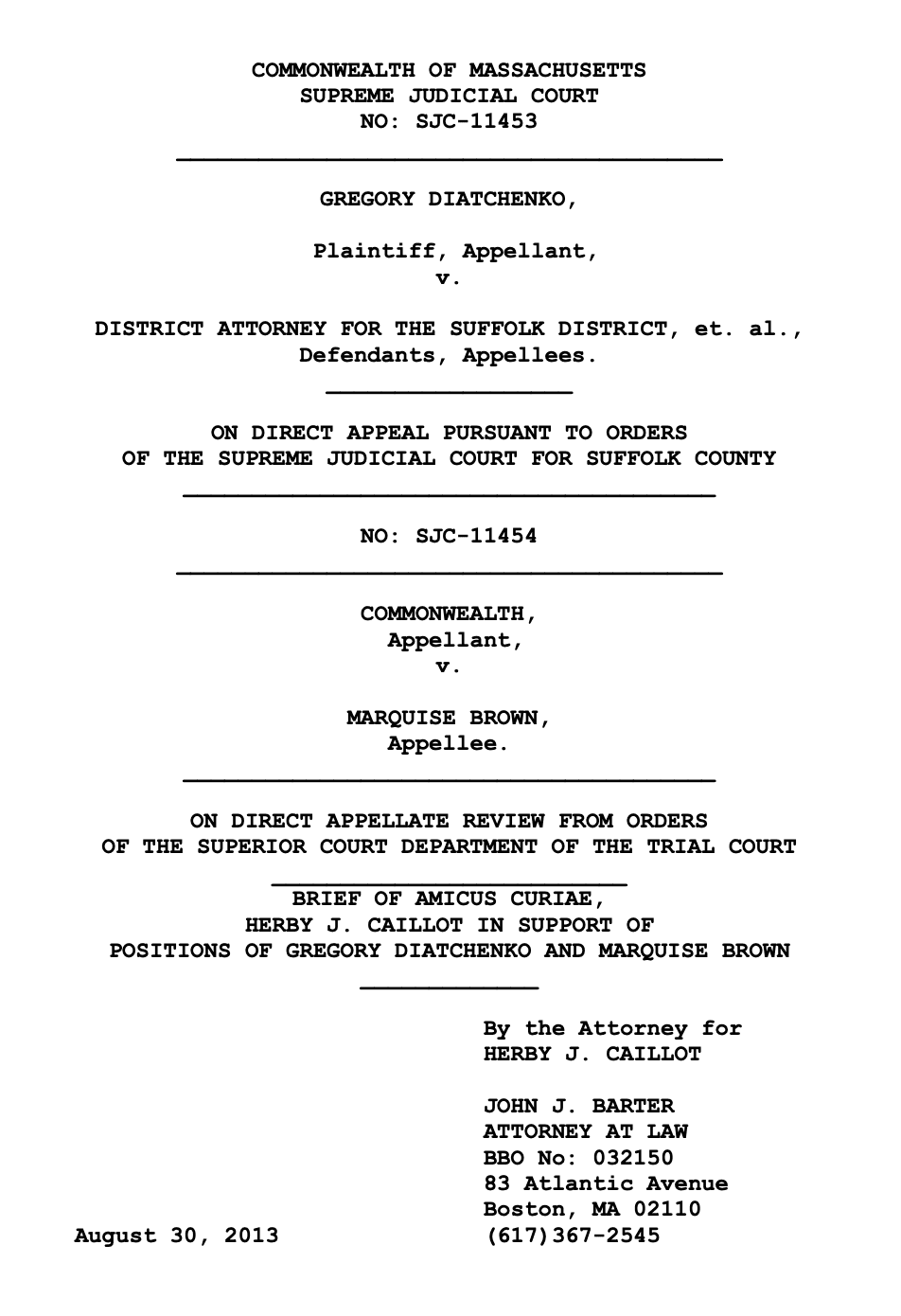
Summary of Argument
I. The relief granted in the Miller and Jackson cases was to reverse the judgments of the state courts, and to remand for further proceedings “not inconsistent” with the Court’s opinion. See, pp. 11-12. It would be inconsistent with the Miller opinion to deny relief to JLWOP defendants who seek relief from their unconstitutional sentences on collateral review. The Jackson case itself arose on collateral review from state court proceedings, and the Supreme Court ordered the same relief as it did for Miller, which arose from a direct appeal from the state’s high court. Where the Supreme Court ordered such relief in a case arising on collateral review, and where the Court’s decision announced a rule of substantive constitutional criminal law, relief is clearly warranted for all defendants including those seeking relief from an unconstitutional sentence in collateral proceedings. See, pp. 12-16. The principles as discussed in the Miller opinion support remand to the trial courts that need not be limited to re-sentencing, and may include a new trial, and in any case must afford an opportunity to develop relevant legal and factual issues. See, pp. 17-24. New trial proceedings may be appropriate when requested by a JLWOP defendant who did not have advance notice of the nature of the proceedings against him or the opportunity to develop a trial strategy, and to conduct pre-trial, and trial proceedings with knowledge of the actual sentencing scheme and the principles of Miller that would ultimately apply to him. In such circumstances the JLWOP defendants have been denied due process of law, the right to a jury trial, and the right to effective assistance of counsel, as guaranteed by the state and federal constitutions. See, pp. 24-28.
II. Any sentence to be imposed on remand must be in accordance with existing constitutional and statutory law and it must appropriately consider the juvenile status of the defendant. Any sentence must recognize the JLWOP defendant’s status as a juvenile. Where the statutes of the Commonwealth require a sentence of “mandatory life without parole,” M.G.L. Ch. 265, § 2; M.G.L. Ch. 127, § 133A, those provisions are unconstitutional, and must be viewed as a nullity. Pursuant to M.G.L. Ch. 279, § 5, the Court should look to the other statutes of the Commonwealth for guidance in sentencing. The most applicable statutes to provide such guidance are the laws relating to juveniles, and the laws relating to manslaughter, because each is consistent with the principles discussed in the Miller opinion. See, pp. 28- 38. Neither the legislature nor the Courts may create a new sentencing scheme applicable to defendants who have already been convicted as that would violate the constitutional doctrine of separation of powers and the constitutional prohibition on ex post facto laws. The existing statutes allow for sentencing of JLWOP defendants either as juveniles, taking guidance from the penalties in the juvenile court system, or to a term of years taking guidance from the most serious homicide offense which permits a trial court to use judgment, consider evidence, and impose an indeterminate sentence. See, pp. 38-44.